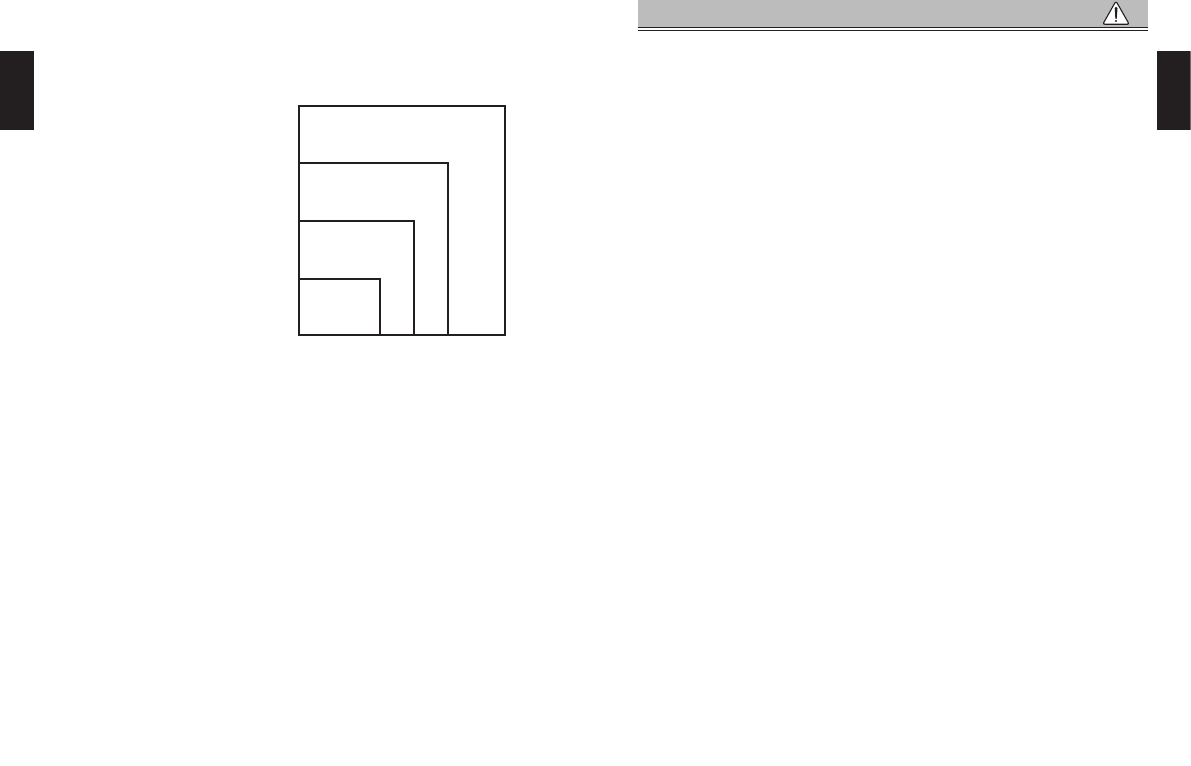
- Eng 3 -
English
Español
Português
Français Pyсский
한국어
- Eng 4 -
한국어
Pyсский Français
Português
Español
English
Precautions for use
1. If you suffer from heart disease, high blood pressure or other circulatory disease,
consult your physician before using the monitor.
2. Infl ating to a higher pressure may result in bruising where the cuff is applied.
If the cuff pressure feels abnormal or you experience any other irregularity while
using the cuff, reduce the pressure immediately by pressing the “START/STOP”
switch, detach the cuff or unplug the air hose connector from the monitor and
then consult the sales outlet where you purchased the monitor.
3. If you think the measurement is abnormal or if measurement makes you feel
unwell, discontinue use and consult your physician.
4. Blood pressure measurement may not be possible for anyone with a weak pulse
or arrhythmia.
5. Repeated blood pressure measurement and prolonged overinfl ation may cause
problems such as congestion or swelling in some people.
6. Frequently repeated blood pressure measurements will not give accurate
results. Allow an interval of about 1 minute between measurements.
7. If you suffer from a severe problem with blood circulation in your arms, consult
your physician before using the monitor. Failure to do so could be hazardous to
your health.
8. Measurement may not be possible for anyone with insuffi cient blood fl ow to the
area where measurements will be taken or who suffers from a frequent irregular
heartbeat. Consult your physician for advice on whether to use the monitor.
9. DO NOT wrap the cuff around an injured arm.
10. DO NOT wrap the cuff around an arm in which a drip (intravenous infusion)
is inserted or which is being used for blood transfusion as part of medical
treatment. Doing so could result in an injury or a serious accident.
11. DO NOT use the monitor in the vicinity of fl ammable gases such as those used
for anaesthesia. Doing so could ignite the gases and cause an explosion.
12. DO NOT use the monitor in enriched oxygen environments such as a hospital’s
hyperbaric chamber or oxygen tent. Doing so could ignite the oxygen and
cause a fi re.
13.
DO NOT use mobile phones near the monitor as this could result in a malfunction.
14. If you use a cardiac pacemaker, consult your physician before using the monitor.
15. Be sure to use this unit only for measuring blood pressure. DO NOT use it for
any other purpose.
16. Be sure to use only our authorized parts and accessories. Parts and
accessories not approved for use with the device may damage the unit.
17. DO NOT use this unit on infants.
18. Blood pressure measurement may not be possible for anyone with common
arrhythmias such as atrial or ventricular premature beats or atrial fi brillation.
10. The National High Blood Pressure Education Program Coordinating
Committee has developed a blood pressure standard, according to which
areas of low- and high-risk blood pressure are identifi ed. This standard,
however, is a general guideline as individual’s blood pressure varies among
different people and different age groups etc. (Ref. The Seventh Report of the
Joint National Committee on Prevention, Detection, Evaluation, and Treatment
of High Blood Pressure-Complete Report JNC-7, 2004)
These blood pressure
classifi cations are based
on historical data, and
may not be directly
applicable to any particular
patient. It is important
that you consult with
your physician regularly.
Please consult with your
physician prior to making
any healthcare decision
based on the device’s
reading. Your physician will
tell you your normal blood
pressure range as well as
the point at which you will
be considered at risk.
Suspected Stage 2
Hypertension
Systolic ≥ 160
Diastolic ≥ 100
Suspected Stage 1
Hypertension
Systolic 140-159
Diastolic 90- 99
Suspected
Prehypertension
Systolic 120-139
Diastolic 80- 89
Normal
Systolic < 120
Diastolic < 80
80
160
140
120
Diastolic (mmHg)
Systolic (mmHg)
90 100
* This unit is equipped an indicator which visually indicates the blood pressure
classifi cation (Normal/Suspected Prehypertension/Suspected Stage1,2
Hypertension) of the result after each measurement.
11. Intended Use
• This device is noninvasive blood pressure monitor by oscillometric method.
This device can measure the systolic blood pressure (SYS), the diastolic blood
pressure (DIA) and the pulse rate automatically.
• This device is intended to be used for checking personal health condition at
home under the direction of a physician and is not intended to be a diagnostic
device.
• This device is not intended for use with neonates or infant, and not intended
for automatic cycling measurement.
Measure your blood pressure at the same time each day.
* Your blood pressure changes all the time. This means that data gathered over
a long period has far more signifi cance than data from just one measurement.
For this reason, you must measure your blood pressure on a daily basis. Ideally,
you should measure your blood pressure at the same time each day, wherever
possible.
PRECAUTIONS FOR USE AND MAINTENANCE














